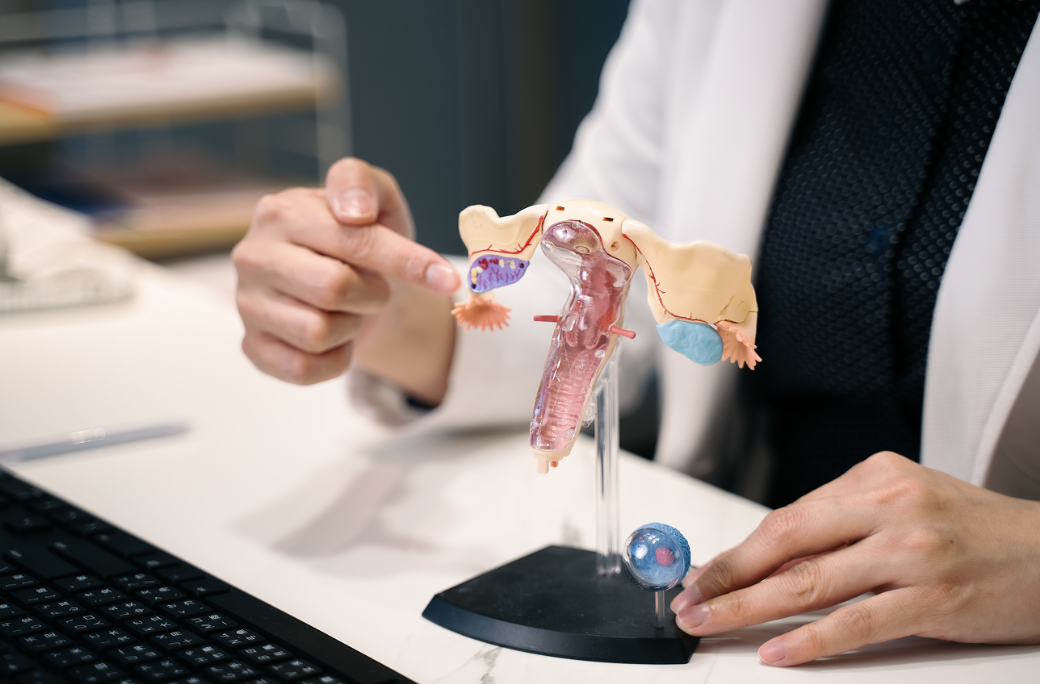
Resources
- Home
- Resources
- Fertility Resources
- Understanding Premature Ovarian Failure
Understanding Premature Ovarian Failure
Share
Does premature ovarian failure affect pregnancy? How should I take care of myself? There are two cases of premature ovarian failure at NUWA that we would like to share with you: one patient had regular menstruation and normal menstrual flow, but she was found to have premature ovarian failure when she was trying to get pregnant. The other patient was under 30 years old, but her menstrual flow was irregular, and she was found to have entered menopause at an early age. What caused both patients to have premature ovarian failure? Today, let's talk about the causes of premature ovarian failure and the various common problems.




What is Premature Ovarian Failure? 4 Common Causes
Generally speaking, the average time for a woman to stop menstruating is around 50 years old. If a woman enters menopause before the age of 40, the phenomenon of recession is Premature Ovarian Insufficiency (POI). There are many possible causes of premature ovarian insufficiency (POI), including the following:
| Common Causes | Explanation |
|---|---|
| Influence of external environment and living habits | Air pollution, plasticizers, smoking, prolonged stress, or irregular work schedule, etc. |
| Abnormalities in their chromosome or gene | A common chromosomal problem is Turner Syndrome; a common genetic problem is Fragile X Syndrome. |
| Ovarian inflammation | Functional disruption due to autoimmune or bacterial attack |
| Affected by treatment of other diseases | E.g. surgical effects, chemotherapy, and electrotherapy injuries |
High-Risk Groups of Premature Ovarian Failure
Some people may ask, "What are the symptoms of poor ovarian function or premature ovarian failure? " But unfortunately, premature ovarian failure does not show any symptoms in the early stages and most people do not find out until they go in for a checkup for irregular menstruation. Usually, by this time, there is little ovarian function left. However, it is worth noting that it usually takes about 5 years for ovarian function to "begin" to decline until it "really" fails, so if you belong to the following groups, you should pay more attention to your condition in advance.
➜ Family history (mom and sister stopped menstruating early)
➜ Tumor in the ovary that requires surgery
➜ Expected to receive chemotherapy or pelvic radiation therapy
➜ Prolonged exposure to high-pressure environments or an irregular lifestyle
2 Major Premature Ovarian Function Tests
From the above explanation, it can be seen that premature ovarian failure does not have obvious precursors or symptoms. Apart from paying attention to one's condition, one can also consider undergoing an ovarian function test if there is a need to prepare for pregnancy. At present, there are two main types of assessment programs:
1. Blood Tests: Anti-Mullerian Tube Hormones(AMH)
It is a self-funded test that can be performed regardless of the time of the menstrual cycle, and numerically quantifies the stock of eggs; in short, the more follicles there are, the higher the AMH value will be.
| Value | Meaning |
|---|---|
| >2 | Normal follicular stock |
| 1~2 | Decreased follicle count |
| <1 | Follicle count almost depleted |
2. Ultrasonic Evaluation - Number of ovarian basal follicles (AFC)
The number of small follicles >2mm in the ovaries can be checked during an ultrasound to estimate the number of eggs in the ovarian reservoir, and about 7-8 eggs in one ovary are considered normal. However, it should be noted that transvaginal ultrasound is usually more accurate, and the experience of the doctor or technician may affect the number of eggs.
Your #1 Priority: Your Health If Diagnosed With Premature Ovarian Failure
What should we do if we find that we have premature ovarian failure? You should start by changing your lifestyle habits.
- Adjusting your daily routine
Adjusting your daily routine, regular exercise, and balanced diet will lay the foundation for your body to take care of itself from the "inside."
- Early planning and egg-freezing
If you have not yet given birth, you are advised to advance your fertility planning or even freeze your eggs in advance to avoid having no eggs available in the future.
Extended reading: Is there an age limit for egg freezing? Detailed information on the conditions, process, cost, and FAQs of egg freezing.
Premature Ovarian Failure FAQs
Q1: Can premature ovarian failure be cured?
Premature ovarian failure can only be "slowed down" and there is no way to recover from it. However, the use of Chinese and Western medicine and lifestyle modifications, such as adequate sleep, regular exercise, a normal work schedule, reducing the consumption of processed foods, and staying away from air pollution and chemical toxins, can help minimize the rapid decline of ovarian function.
Women who have been found to have premature ovarian failure are advised to have children earlier; however, if they have other plans or have not yet met a partner, it is recommended that they plan to freeze their eggs to provide them with options for future fertility.
Q2: Is there a chance of conceiving naturally with premature ovarian failure?
As long as ovulation is confirmed, there is still a chance that pregnancy can occur naturally with premature ovarian failure. At NUWA TCM Center, there are many success stories of pregnancy through Chinese medicine, as well as cases of successful pregnancies through a combination of Chinese and Western medicine in IVF.
Q3: Can premature ovarian failure lead to early menopause?
Premature ovarian failure also means a decline in fertility, and because of hormonal changes in women, various menopausal symptoms begin to appear, such as hot flashes and night sweats, anxiety, dry skin, loss of elasticity, sagging and looseness of the breasts, and hips, and can also be accompanied by severe dryness of the vagina and other problems.
Premature Ovarian Failure Story

Ms. H, who is over 35 years old and has premature ovarian failure with an AMH of 0.5, came to NUWA Fertility Center. Since her first egg retrieval was not very good, Dr. Chi Chun Liao asked Ms. H to go to the NUWA TCM Center for physical conditioning, and Dr. Li Ling Shen helped Ms. H with her physical conditioning for 3 months.
After physical conditioning, a good-grade BB blastocyst was successfully cultured. Even though it was a low-grade inlay, the embryo was completely unrecognizable passed the genetic test, and turned out to be twins! In the end, the twins were born safe and sound! It has inspired many future moms who want to give birth to children with premature ovarian failure💕.
Although it is still difficult to fully recover from premature ovarian failure, through proper management and the doctor's planning, there is still a chance for you to conceive! Therefore, if you are worried about your condition, you can visit NUWA Fertility Center for a detailed examination, so that we can assist you in adjusting your health and provide you with a suitable fertility plan.
Author's Information
NUWA Fertility Center, Dr. Chi Chun Liao, Medical Director of Reproductive Medicine

ADMINISTRATIVE APPOINTMENTS:
Director of Reproductive Medicine Center, Taipei Medical University-Shuang Ho Hospital, Ministry of Health and Welfare
Physician of Reproductive Medicine, MacKay Memorial Hospital
EDUCATION:
School of Medicine, National Defense Medical Center
SPECIALTY:
Infertility / Frozen Embryos, Frozen Eggs, Frozen Sperm / In Vitro Fertilization / Artificial Insemination / Follicle Monitoring / Reproductive Endocrinology / Endoscopy / Laparoscopy / Polycystic Ovaries / Endometriosis / Uterine Fibroids
👉 Find out more about NUWA Healthcare
Seminars

